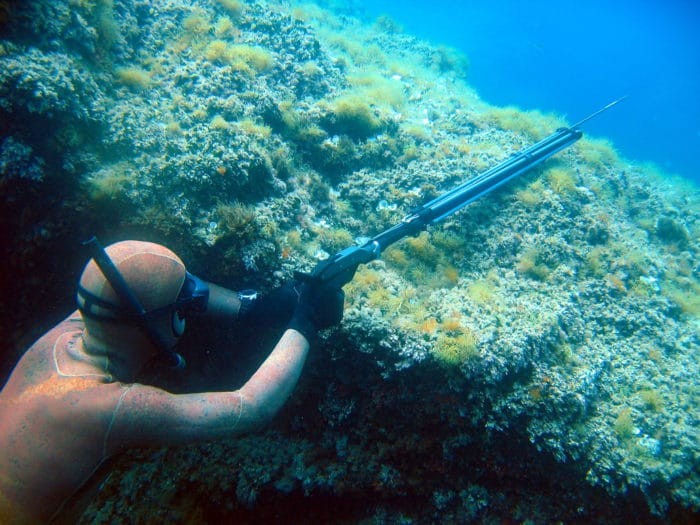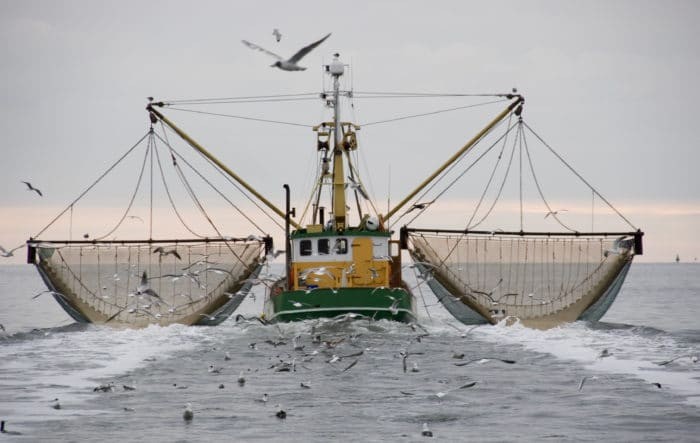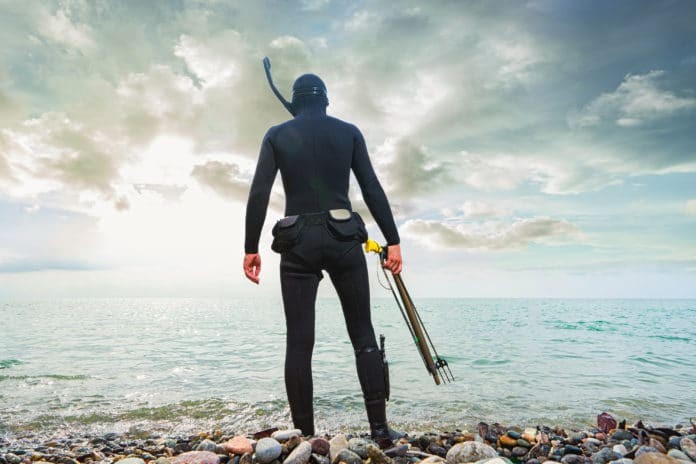It’s a sunny afternoon and the boulevard in Taganga is boiling with people as usual on a Sunday afternoon, I was walking with a beautiful Brazilian Yogini with whom I’d practice a little yoga on the beach. I met her couple days before and we were chatting on our way to the beach across the hills and I was fascinated to hear from her experience, her stories of her travels in India, her receptivity and responsiveness on Yoga … and life. Of course, there were basic questions: Where were you born? What do you do? etc, and I have to confess every time I have the pleasure of meeting a yogi there is this apprehension in me when I answer that question due to their precepts and beliefs which I truly respect and most of them I agree, and the truth is most of them tend to be very open-minded and she was no exception, in fact, she would teach me to see beyond my vision. Of course, I’m talking of that part of the conversation where I go: “I do spearfishing.”

I guess I was expecting some criticism over the issue of karma and compassion but the truth was there was none, she was absolutely open-minded about it and didn’t judge me at all, instead, she introduced me to a completely new concept: Karmic food. There are certain foods we eat that involve certain levels of Karma, some more than others, now this has nothing to do with religion or anything at all, let’s analyze it for a second, the point is very simple: beef for example involves a forest that was cleared to become pastureland, then take an animal whose life is controlled, never free, generates pollution during their life (methane emissions, fecal matter etc), millions of water gallons needed, then suffer and is part of an endless chain from which we feed, same case for poultry and other meats we eat. With the fish we catch specifically while spearfishing the chain is a lot simpler: it is a free animal, which is in its natural environment, is selected by size and has already mated, it’s part of an abundant species and their suffering is much less.
Spearfishing has been marked in these days as something perverse, cruel and non-sustainable, but nothing is further from reality and I’d like to share some facts and thoughts on the topic:
- Less than 1% of the world’s fish population are caught annually around the world with spearfishing.
- The capture rate is much lower compared to net fishing and industrial fishing, even if everyone decides to go hunt it would be much better than industrial fishing vessels sweeping the oceans 24/7, capturing from huge tuna to small sardines, which of course are impossible to catch for us. Of course, we talk about stop fishing with nets and do spearfishing only
- Perhaps the most important thing to keep in mind: We choose what we catch: we choose by size (mature), species (endangered or not), behavior (mating), season, and protected areas.
- You have any idea how they caught that delicious fish you ate recently in that fancy restaurant? Perhaps with dynamite, perhaps longline who also captures sharks and turtles, perhaps trawls who also kill dolphins and other sea mammals, or methods that devastate the seabed, capturing the small ones or even other species that are not edible…non-sustainable methods.
- Spearfishing together with sustainable fishing methods allow a recovery rate and balance to the fish populations, industrial fishing (products in supermarkets and big cities) doesn’t.
- We do not fish with dynamite, we do not catch animals that are not going to be consumed, we do not use nets that trap small schools, we did not cut down the forest which indirectly kills the corals…all we do is spear a fish for dinner.
- We fish to share with our families and friends, that is our biggest motivation, something very simple from the beginning of time: hunting for food and survival, nothing more.

Of course, it is a fact that not everything with spearfishing is harmony and we must also consider the following principles, and this is something I want my fellow spearfishers to read carefully out there:
- Respect protected species: Last week I was lucky to see a goliath grouper, also known as jewfish in a permitted fishing area. Goliath groupers are not protected in Colombia. It was a beautiful animal, at least one meter long, very rarely seen these days in here, good enough for a few weeks of fish, but I decided not to shoot, instead, I looked at him, admired him and then scared him off so he could at least have a new chance. The jewfish is on a no catch list in the Caribbean and especially in Colombia, it also offers little merit as of the sport, or as my good friend and excellent fisherman Nicolas Valencia says, “it’s like hunting cows.” The list is long, so learn and educate yourself before going out.
- Respect the minimum sizes: Read before jumping into the water. Learn about the permitted species and minimum sizes for each one.
- Do not you fish in protected areas: simple, respect the parks and natural sanctuaries for ocean wildlife so we can always enjoy it and it can always recover.
- No tanks: Simple, if you can’t dive then don’t dive, spearfishing has to be done while Freediving means you are holding your breath, otherwise it’s illegal and absolutely non-sustainable.
- Stop thinking in pounds: Especially with octopus and lobster, both in the no catch list for the Colombian Caribbean. Instead of thinking in 10 pounds of octopus or lobster (catching 20 animals, ½ pound each) think on 2 pieces, 5 pounds each.
- Observe: We have that power, a power that other fishermen do not, and in the wise words of Peter Parker’s uncle Ben: “With great power comes great responsibility.” I once saw 2 large groupers that were moving in a curious/funny way, the first thing I thought is that I was very lucky and engaged, then I saw again and understood that they were in a dance of mating and left the lovers alone. If you see a lobster make sure they don’t have eggs. Also, observe that animals are not on the red list
- Eat what you catch, catch what you eat: don’t just fish for a photo or to prove your manhood to your friends, catch only the fish you are willing to take home and eat. I’ve heard many cases of people fishing giants just for the photo and then they have no idea what to do or how to move the animal, so what happens? They rot because they were not prepared or leave them lying on the beach … it’s a shame! So think before you shoot or don’t shoot at all. At least give it to the locals, but never allow yourself the sin of wasting food, it is indeed a tragedy, there are many people out there starving. There is no greater satisfaction than to bring fresh and healthy food home and sharing it with family and friends.
- Aim carefully: If there’s coral between your spear and your prey, or behind it then do not shoot, you’re going to break the coral and they grow an average of 1 cm per year, that’s very slow.
- Catch some lionfish (if you are in the Atlantic ocean/Caribbean sea): their meat is delicious, especially for ceviche and we all know the problem with them, design a sling or use a small gun just for them, take a good bag where you can put them without hurting yourself, their sting is painful but not fatal.
Certainly the conclusion is that it is not just about going out there and shoot the first thing moving, a spearfisher is more committed and has the obligation to be more responsible, we are in the water with them and we are very grateful to Mother Ocean when she shares her gifts, this activity involves a high level of consciousness and awareness together in order to be sustainable, once achieved it is a wonderful practice that could help the ecosystem much more than we could ever imagine. Think and then shoot.
Safe dives!

